Energy Efficiency
Practical Guide: Efficient Energy Use in Heat Pumps

Are your heat pump energy bills leaving you feeling cold? We’ve got you covered with our practical guide to efficient energy use in heat pumps.
With our expert tips and tricks, you’ll be able to optimize your heat pump settings, ensure proper insulation and weatherization, and perform regular maintenance for energy-efficient operation.
Say goodbye to high energy bills and hello to a cozy home.
Let’s dive in and start saving energy together!
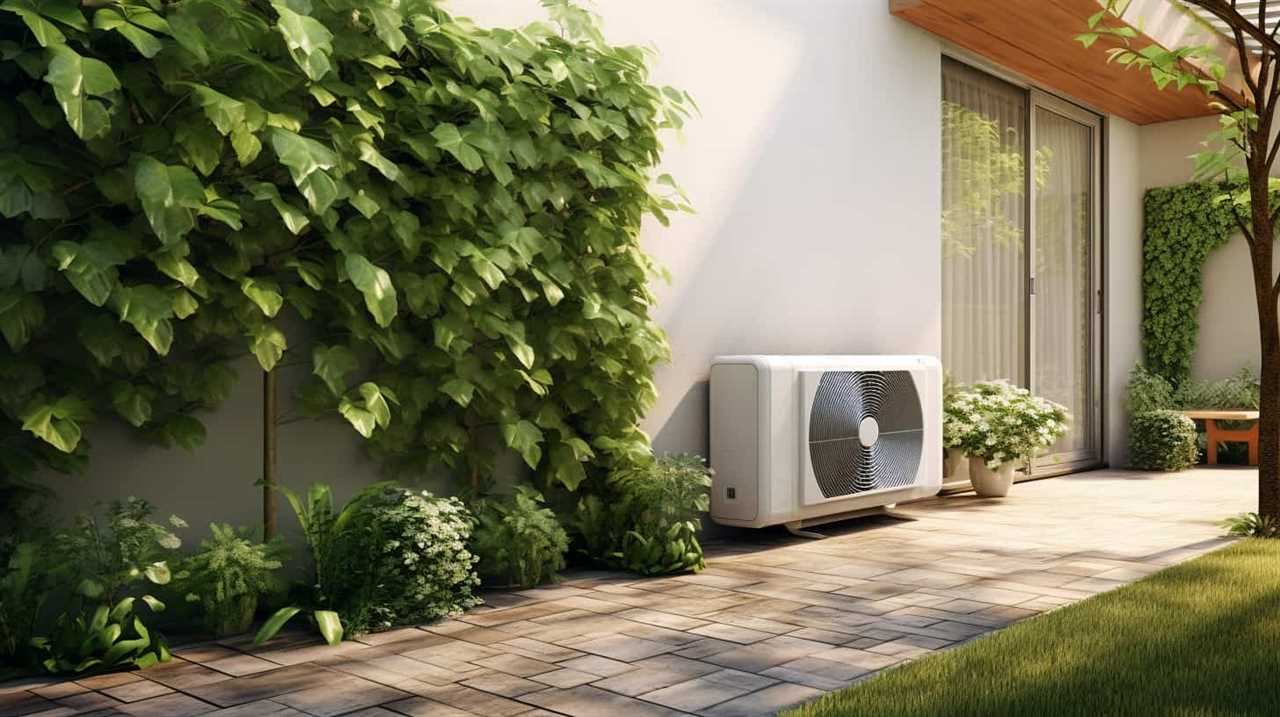
Key Takeaways
- Heat pumps are rated based on their Seasonal Energy Efficiency Ratio (SEER) and Heating Seasonal Performance Factor (HSPF), with higher ratings indicating greater energy efficiency.
- Troubleshoot common efficiency issues by checking refrigerant levels, cleaning air filters, and ensuring the outdoor unit is free from debris.
- Install a smart thermostat to control the temperature remotely and optimize energy conservation.
- Prioritize proper insulation and weatherization to minimize heat loss, seal air leaks, and improve energy efficiency.
Understanding Heat Pump Efficiency Ratings
Let’s start by understanding the efficiency ratings of heat pumps. In recent years, heat pump technology advancements have led to significant improvements in energy efficiency. Heat pumps are rated using two key measurements: the Seasonal Energy Efficiency Ratio (SEER) and the Heating Seasonal Performance Factor (HSPF).
The SEER rating measures the cooling efficiency of the heat pump, while the HSPF rating measures its heating efficiency. Higher SEER and HSPF ratings indicate greater energy efficiency.
To troubleshoot common heat pump efficiency issues, it’s important to check for proper refrigerant levels, clean air filters, and ensure that the outdoor unit is free from debris. Regular maintenance and professional inspections can also help identify and resolve any efficiency problems.
Optimizing Heat Pump Settings for Energy Conservation
To optimize energy conservation, we can adjust the settings of our heat pump. Here are a few ways we can make our heat pump more efficient:
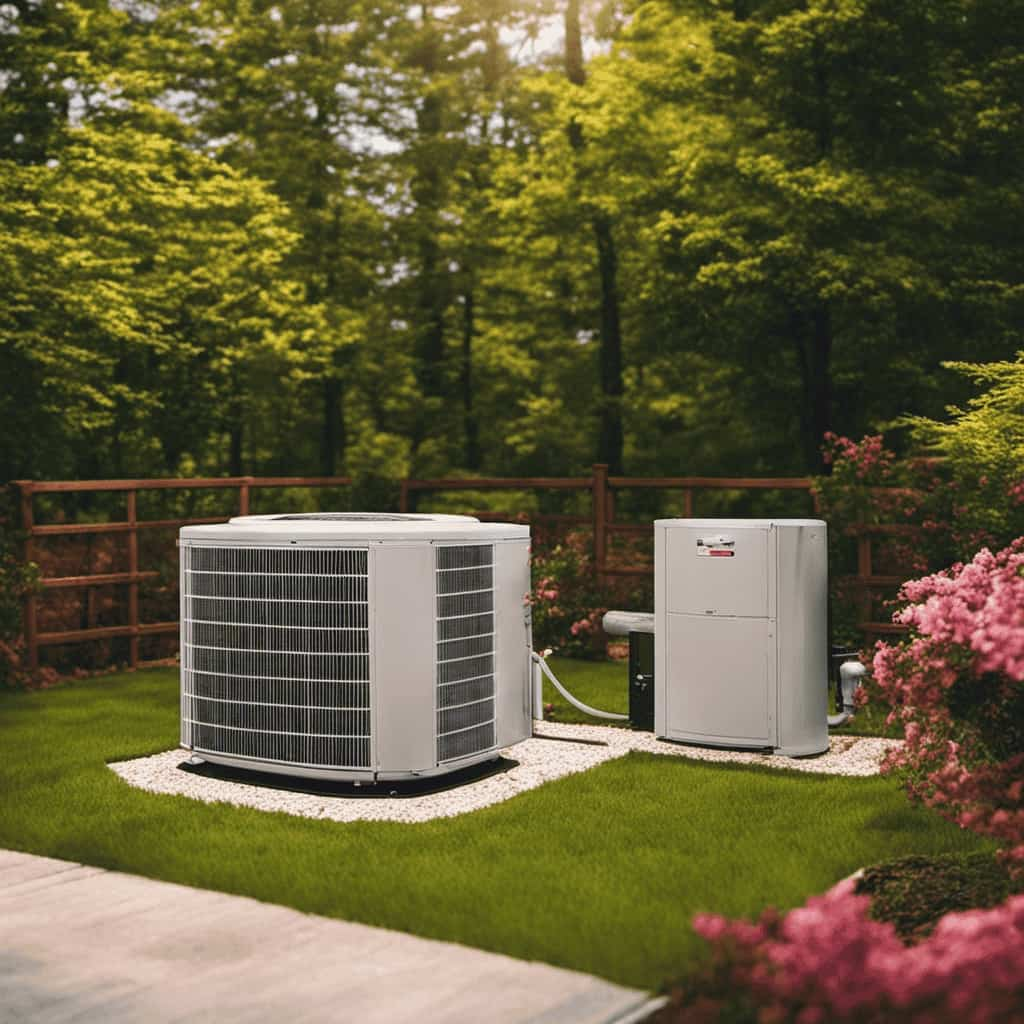
-
Install a smart thermostat: A smart thermostat allows us to control the temperature of our home remotely, ensuring that the heat pump isn’t running unnecessarily when we’re away.
-
Consider geothermal options: Geothermal heat pumps use the constant temperature of the earth to heat and cool our homes, resulting in significant energy savings.
-
Set the temperature wisely: By setting the temperature a few degrees lower in winter and a few degrees higher in summer, we can reduce the workload on our heat pump and save energy.
-
Utilize programmable settings: Programming our heat pump to operate at lower temperatures during times when we’re sleeping or away from home can result in substantial energy savings.
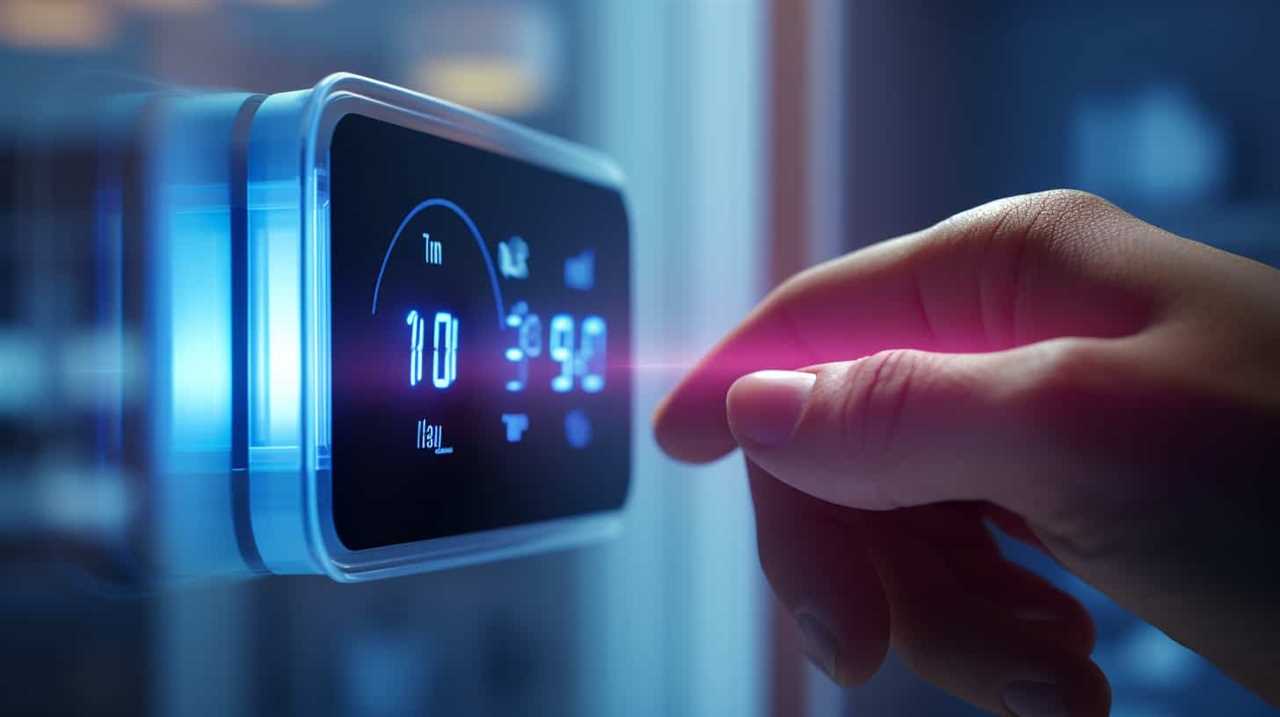
By optimizing the settings of our heat pump, we can maximize energy conservation and reduce our carbon footprint.
Now, let’s move on to the next section about proper insulation and weatherization for heat pump efficiency.
Proper Insulation and Weatherization for Heat Pump Efficiency
To ensure optimal heat pump efficiency, we must prioritize proper insulation and weatherization in our homes. By implementing effective insulation techniques and weatherization methods, we can minimize heat loss and prevent drafts, resulting in improved energy efficiency and reduced heating costs.
Insulation acts as a barrier to prevent heat transfer between the indoor and outdoor environments. Common insulation materials include fiberglass, cellulose, and spray foam. It is important to insulate walls, floors, and attics to create a well-insulated envelope in the home. Additionally, weatherization methods such as sealing air leaks around windows, doors, and ductwork can further enhance energy efficiency.

By combining insulation techniques and weatherization methods, homeowners can optimize heat pump performance and reduce energy consumption. The table below highlights some effective insulation techniques and weatherization methods for heat pump efficiency.
| Insulation Techniques | Weatherization Methods |
|---|---|
| Properly insulate walls, floors, and attics | Seal air leaks around windows, doors, and ductwork |
| Use insulation materials such as fiberglass, cellulose, or spray foam | Install weatherstripping on doors and windows |
| Consider adding insulation to the basement or crawl space | Insulate hot water pipes and ductwork |
Regular Maintenance and Cleaning for Energy-Efficient Heat Pump Operation
Ensuring regular maintenance and cleaning is essential for maintaining the energy efficiency of our heat pump system. By following a maintenance checklist and implementing proper cleaning techniques, we can optimize the performance of our heat pump and minimize energy waste.
Here are some important steps to include in our regular maintenance routine:
-
Clean or replace air filters regularly to ensure proper airflow and prevent debris buildup.
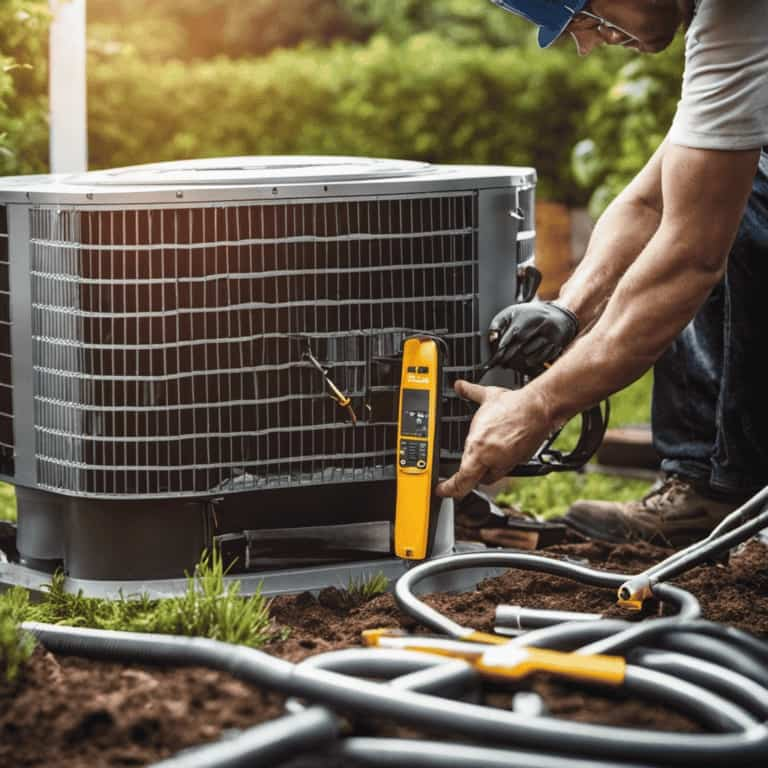
-
Inspect and clean the outdoor unit to remove any dirt, leaves, or other obstructions that may hinder its efficiency.
-
Check and clean the indoor evaporator and condenser coils to improve heat transfer and prevent ice buildup.
-
Lubricate moving parts, such as fan motors and bearings, to reduce friction and improve overall system efficiency.
Advanced Energy-Saving Strategies for Heat Pump Users
We can implement three advanced energy-saving strategies to optimize the efficiency of our heat pump system.

First, smart thermostat integration allows us to control and schedule the temperature settings, ensuring that the heat pump operates only when needed. By using a smart thermostat, we can reduce energy consumption and save on utility bills.
Second, considering geothermal heat pump options can significantly improve energy efficiency. Geothermal heat pumps use the stable temperature of the ground to heat and cool our homes, resulting in lower energy consumption and reduced environmental impact.
Frequently Asked Questions
How Do I Choose the Right Size Heat Pump for My Home?
We choose the right size heat pump for our home by using a heat pump size calculator. Factors such as the square footage of our home, insulation levels, and climate are important in determining the appropriate size.
Can I Use My Heat Pump for Both Heating and Cooling Purposes?
Yes, you can use your heat pump for both heating and cooling purposes. It is important to follow a heat pump maintenance checklist to ensure optimal performance. There are many benefits to using a heat pump for both heating and cooling.
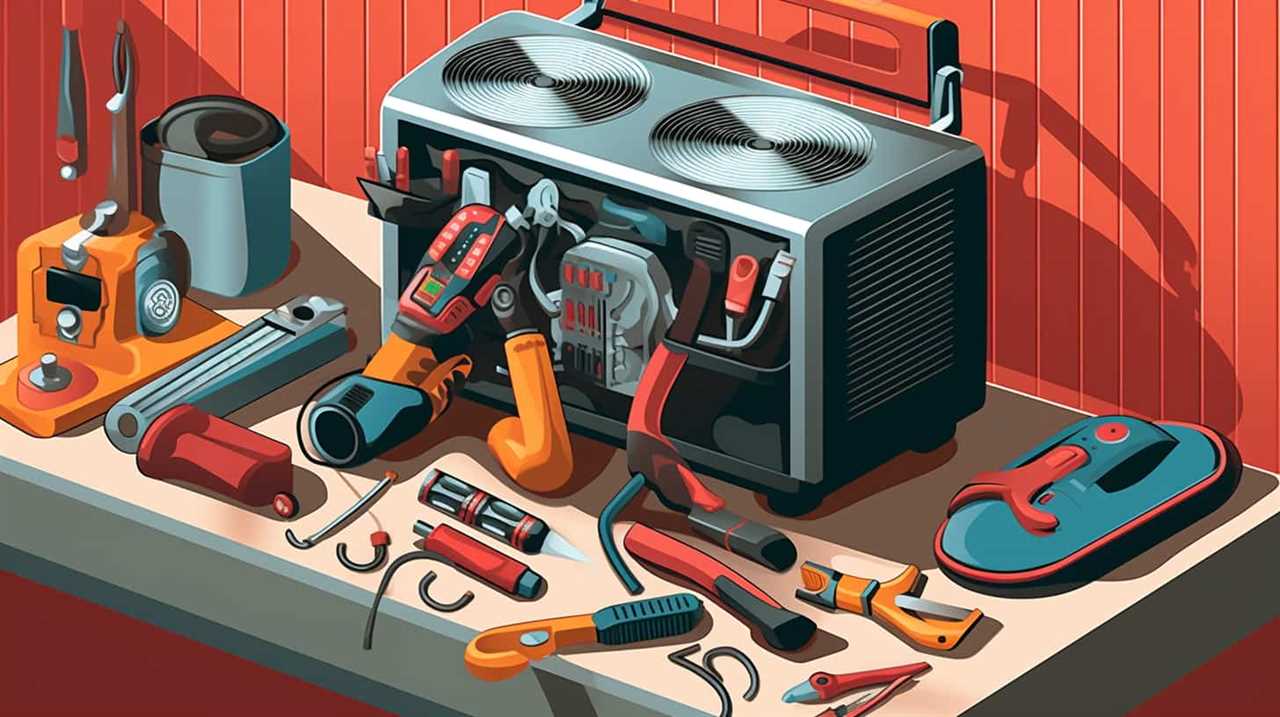
What Are the Common Signs That Indicate My Heat Pump Needs Maintenance?
When a heat pump needs maintenance, common signs include reduced heating or cooling capacity, strange noises, leaks, or an increase in energy consumption. Regular maintenance and following energy-saving tips can help prevent problems.
Are There Any Government Incentives or Tax Credits Available for Installing Energy-Efficient Heat Pumps?
Yes, there are government incentives and tax benefits available for installing energy-efficient heat pumps. These incentives and benefits aim to promote the use of efficient technologies and help reduce energy consumption in residential and commercial buildings.
Can I Install a Heat Pump in a Region With Extremely Cold Winters?
Yes, you can install a heat pump in a region with extremely cold winters. Heat pump efficiency can be maximized by following best practices for installation, such as proper insulation and sizing.
Conclusion
In conclusion, by understanding heat pump efficiency ratings, optimizing settings, insulating properly, and performing regular maintenance, users can achieve energy-efficient operation.
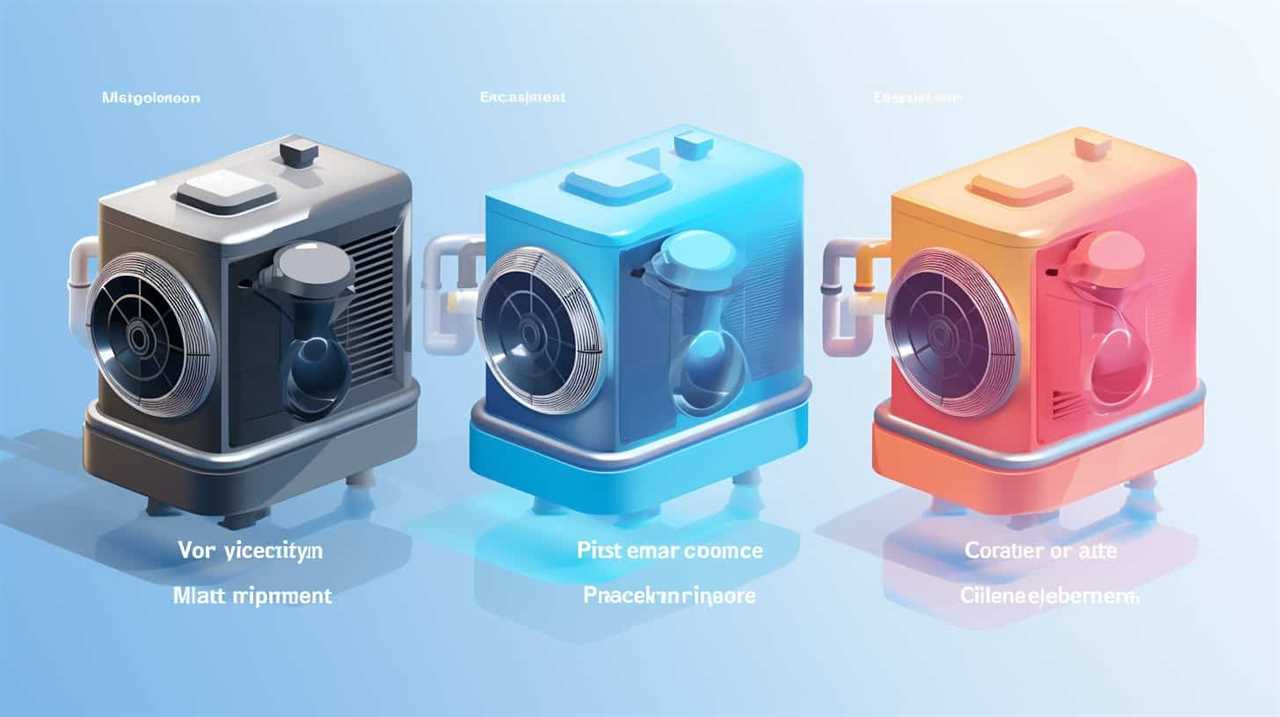
Taking these steps won’t only save money but also contribute to a greener environment.
Like a well-oiled machine, a well-maintained heat pump will efficiently heat or cool your home, providing comfort while minimizing energy waste.
So let’s embrace these practical strategies and pave the way for a more sustainable future.
Energy Efficiency
Embrace Climate Victory: Heat Pump Efficiency’s Power

We’ve all felt the scorching heat of summer, but did you know that embracing heat pump efficiency could lead us to climate victory?
Heat pumps have the power to combat climate change by reducing energy consumption and greenhouse gas emissions. With their ability to harness renewable energy sources, heat pump efficiency is a game-changer in the fight against global warming.
In this article, we’ll explore how this technology empowers us to make a real difference and embrace a sustainable future.
Key Takeaways
- Heat pump energy efficiency is vital for reducing energy consumption and greenhouse gas emissions.
- Renewable energy sources, such as solar, wind, and hydro power, have lower carbon footprints and are sustainable in the long run.
- Proper insulation, smart controls, and regular maintenance optimize heat pump operation and improve efficiency.
- Heat pump efficiency contributes to climate goals by minimizing energy consumption, reducing reliance on fossil fuels, and decreasing greenhouse gas emissions.
The Role of Heat Pump Energy Efficiency in Combating Climate Change
As we examine the role of heat pump energy efficiency in combating climate change, it’s clear that its effectiveness can’t be overstated.

Heat pumps are energy-saving technologies that play a crucial role in reducing greenhouse gas emissions and promoting sustainable development. By harnessing renewable energy sources, heat pumps contribute to the integration of clean and green energy into our daily lives. These innovative devices work by transferring heat from one location to another, using minimal amounts of electricity.
They offer a solution-oriented approach to our energy needs, providing both heating and cooling capabilities while minimizing environmental impact. The integration of heat pump technology into our homes, businesses, and industries is vital for achieving significant reductions in carbon emissions and addressing the challenges posed by climate change.
Understanding the Environmental Impact of Energy Use
We must recognize the importance of understanding the environmental impact of our energy use and how it affects our planet. Energy consumption plays a significant role in climate change and the degradation of our environment.
According to the International Energy Agency, global energy-related CO2 emissions reached a record high in 2018, contributing to the rising global temperatures. To mitigate these impacts, we need to transition from fossil fuels to renewable energy sources.

Renewable energy sources such as solar, wind, and hydro power have lower carbon footprints and are sustainable in the long run. By embracing renewable energy, we can reduce our carbon emissions and combat climate change.
It’s crucial for us to make conscious choices in our energy consumption to protect our planet for future generations.
Harnessing the Power of Heat Pump Energy Efficiency
Let’s explore how we can maximize the potential of heat pump energy efficiency to achieve significant energy savings.
Harnessing the potential of heat pump technology is crucial for effective energy conservation. Here are three key ways we can leverage heat pump energy efficiency:

-
Optimize insulation: Proper insulation of buildings ensures minimal heat loss, allowing heat pumps to operate at their highest efficiency. By sealing air leaks, insulating walls, attics, and floors, we can minimize the energy required to heat or cool the space, maximizing the efficiency of heat pumps.
-
Implement smart controls: Utilizing advanced control systems enables us to optimize the operation of heat pumps. By integrating smart thermostats and zoning techniques, we can regulate temperature levels in different areas of the building, reducing energy wastage and improving overall efficiency.
-
Regular maintenance: Regular maintenance of heat pumps ensures their optimal performance. Timely cleaning, filter replacement, and inspections by professionals help identify and address any inefficiencies, ensuring that the heat pumps are operating at their highest efficiency level, leading to significant energy savings.
How Heat Pump Efficiency Contributes to Climate Victory
Two key factors contribute to the climate victory: the number of heat pumps installed and their efficiency in reducing greenhouse gas emissions.
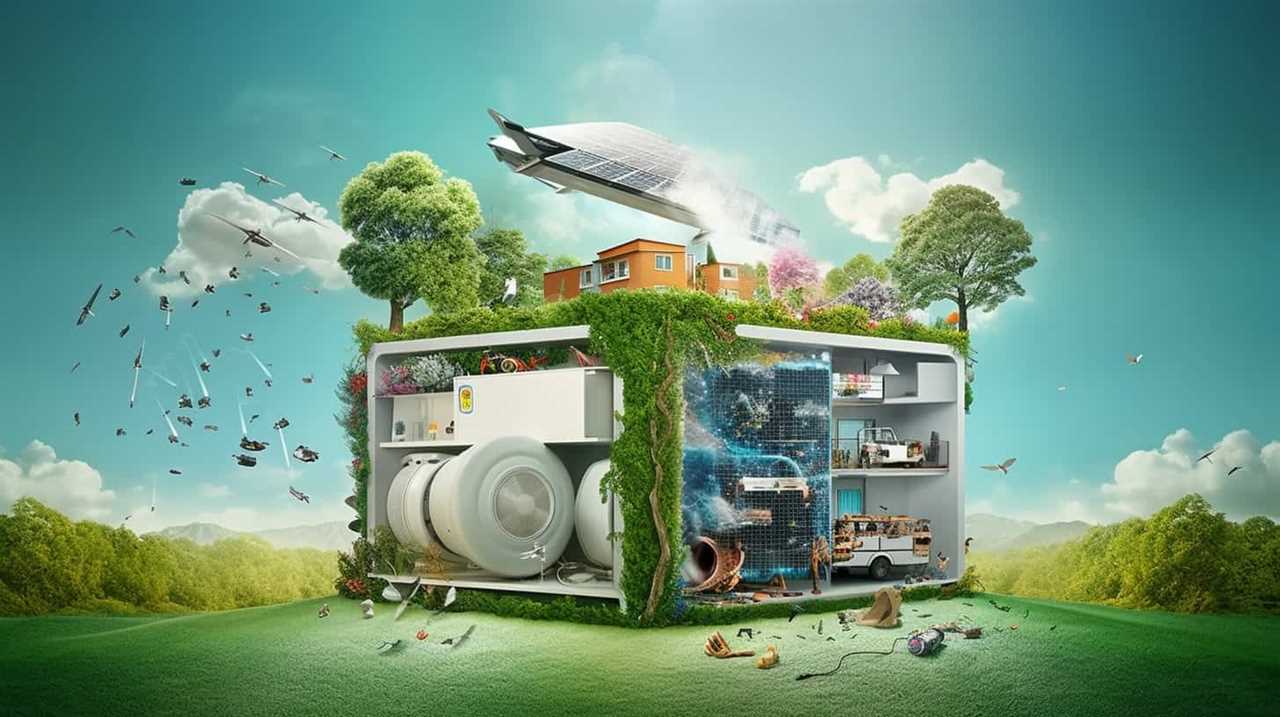
Heat pump efficiency plays a crucial role in achieving our climate goals by minimizing energy consumption and maximizing energy savings. Heat pumps are a renewable technology that harnesses the natural heat from the air, ground, or water and transfers it to provide heating or cooling for residential and commercial spaces. By using this renewable energy source, heat pumps significantly reduce our reliance on fossil fuels, leading to a substantial decrease in greenhouse gas emissions.
The energy savings achieved through heat pump efficiency not only contribute to climate victory but also result in cost savings for consumers. Transitioning to heat pump systems is a powerful step towards a sustainable future, empowering change and paving the way for a cleaner and greener world.
Empowering Change: The Potential of Heat Pump Energy Efficiency
With its potential to significantly reduce carbon emissions and increase energy savings, heat pump energy efficiency has the power to empower change in the fight against climate change. This innovative technology offers sustainable solutions that can transform the way we heat and cool our homes, businesses, and communities.
Here are three key ways heat pump energy efficiency can make a difference:
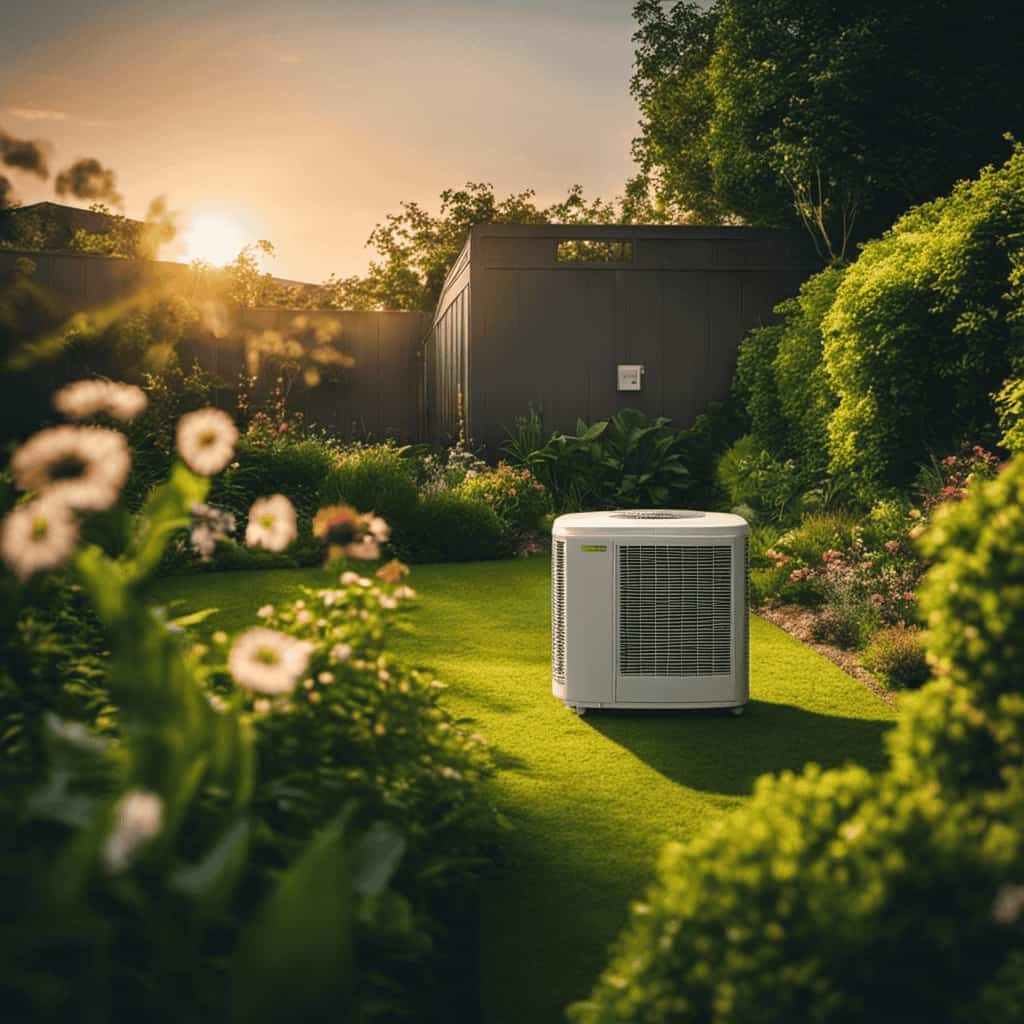
-
Energy savings: Heat pumps are highly efficient, converting a small amount of electricity into a large amount of heating or cooling. This means lower energy consumption and reduced utility bills.
-
Carbon reduction: By utilizing renewable energy sources, such as geothermal or air-source heat pumps, we can greatly reduce our reliance on fossil fuels and decrease greenhouse gas emissions.
-
Scalability: Heat pump technology can be scaled for various applications, from residential buildings to large commercial complexes. This flexibility allows for widespread adoption and maximum impact in the fight against climate change.
Frequently Asked Questions
What Are Some Common Misconceptions About Heat Pump Energy Efficiency?
Common misconceptions about heat pump energy efficiency include the belief that they are inefficient in cold climates and that they are expensive to install. However, heat pumps offer numerous benefits and have few drawbacks when it comes to energy efficiency.

How Does Heat Pump Energy Efficiency Compare to Other Renewable Energy Sources?
When comparing heat pump energy efficiency to other renewable energy sources, we find that heat pumps have distinct advantages. They offer high efficiency, low emissions, and the ability to provide both heating and cooling.
What Are the Main Challenges in Implementing Heat Pump Energy Efficiency on a Large Scale?
Scaling up heat pump energy efficiency presents challenges, but the benefits in cold climates are immense. By addressing scalability issues and harnessing the power of heat pumps, we can achieve climate victory and embrace a sustainable future.
Are There Any Government Incentives or Programs Available to Encourage the Adoption of Heat Pump Energy Efficiency?
There are government incentives and energy efficiency programs available to encourage the adoption of heat pump energy efficiency. These initiatives provide financial support and resources to help individuals and businesses transition to more sustainable heating and cooling solutions.
How Does Heat Pump Energy Efficiency Contribute to Reducing Greenhouse Gas Emissions?
Heat pump technology offers numerous benefits, including improved energy efficiency, which directly contributes to reducing greenhouse gas emissions. By embracing heat pump efficiency, we can make significant progress in our fight against climate change.
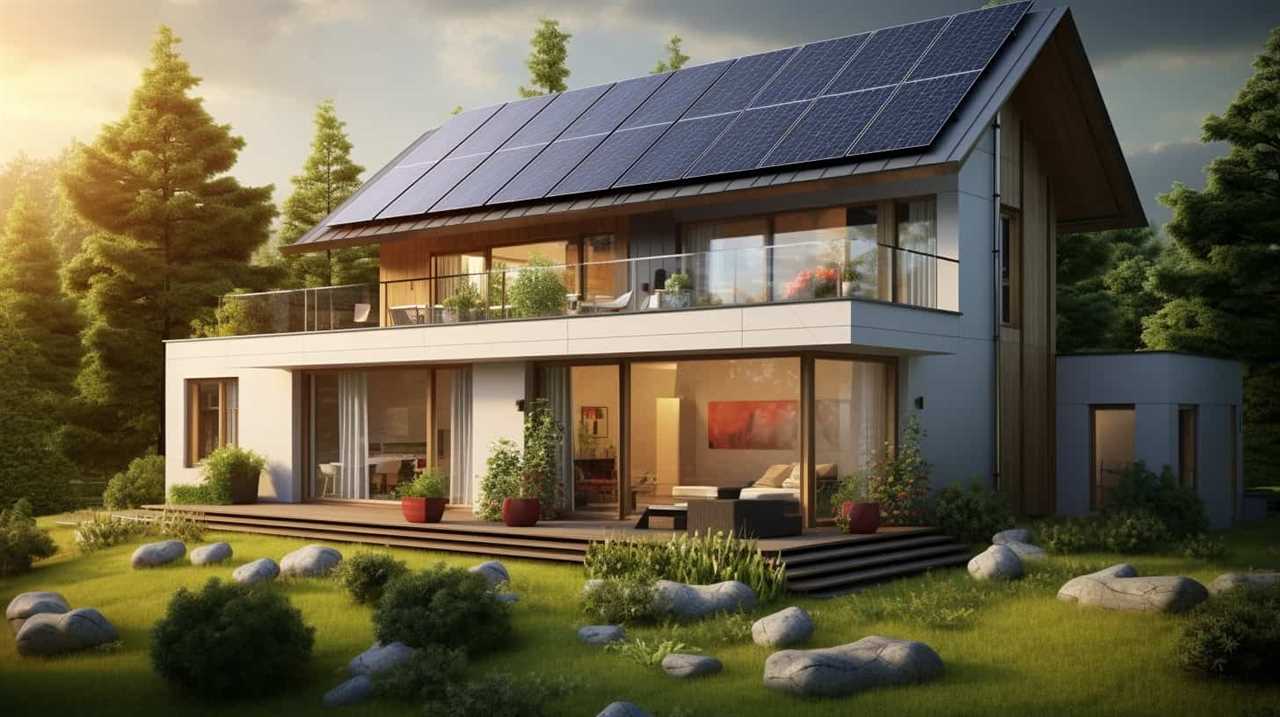
Conclusion
In conclusion, the power of heat pump energy efficiency is a symbol of hope in our fight against climate change. By harnessing this technology, we can significantly reduce our environmental impact and contribute to a climate victory.
The potential of heat pump energy efficiency empowers us to make positive changes and create a sustainable future. Let’s embrace this solution and work together towards a greener and brighter tomorrow.
Energy Efficiency
Top Techniques: Boosting Your Heat Pump’s Energy Efficiency

Did you know that by optimizing temperature settings, performing regular maintenance, and insulating your home, you can increase your heat pump’s energy efficiency by up to 30%?
In this article, we’ll share the top techniques to help you save energy and money.
From utilizing programmable thermostats to supplementing with solar power, these tips will ensure your heat pump operates at its best.
Don’t miss out on these expert recommendations to make your home more energy-efficient.

Key Takeaways
- Utilize zoning systems and smart technology to schedule temperature adjustments based on daily routines and maximize energy efficiency.
- Regularly maintain and clean your heat pump, including inspecting and cleaning air filters, checking for refrigerant leaks, and lubricating motor and fan bearings.
- Insulate your home to reduce energy wastage and improve the efficiency of your heat pump, including sealing air leaks, installing insulation, and using double-glazed windows.
- Ensure proper airflow by keeping vents and registers unobstructed, cleaning or replacing air filters regularly, and using ceiling fans to improve air distribution.
Optimizing Temperature Settings
Let’s start by finding the optimal temperature settings to maximize our heat pump’s energy efficiency. With the advancement of smart technology, heat pumps are now equipped with features that allow for precise temperature control.
By utilizing zoning systems, we can divide our home into different areas and control the temperature independently in each zone. This means we can heat or cool only the areas that are occupied, reducing energy waste.
Smart technology also enables us to schedule temperature adjustments based on our daily routines, ensuring comfort when we need it and energy savings when we don’t.
It’s important to set the temperature at a moderate level, avoiding extreme highs or lows, as this can strain the heat pump and decrease overall efficiency.
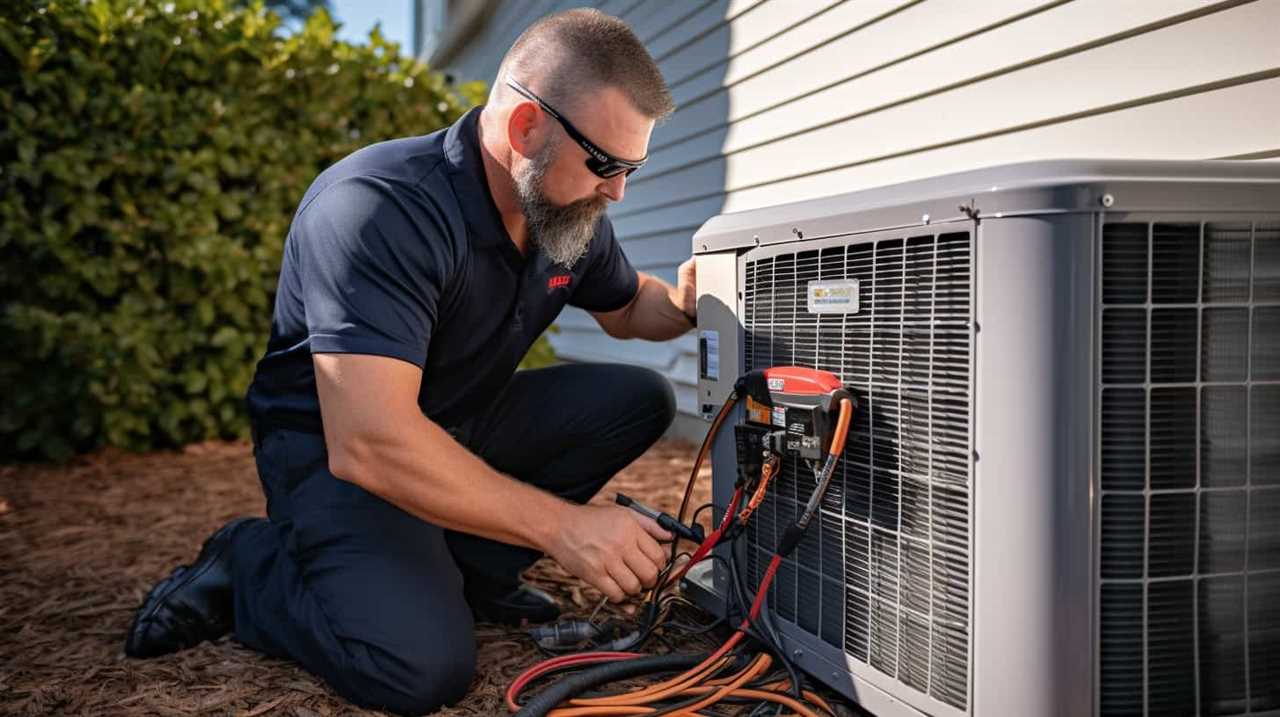
Regular Maintenance and Cleaning
To ensure optimal performance and energy efficiency, we need to regularly maintain and clean our heat pump. Following a maintenance checklist is essential for keeping our heat pump in top shape.
The maintenance checklist includes tasks such as inspecting and cleaning the air filters, checking for any refrigerant leaks, and lubricating the motor and fan bearings. Regular cleaning of the heat pump’s exterior is also necessary to remove dirt and debris that can hinder its efficiency.
When it comes to cleaning products, it’s important to use ones specifically designed for heat pumps to avoid damaging the unit. Using a soft brush or cloth and mild detergent is typically sufficient for cleaning the exterior surfaces.
Insulating Your Home
How can we effectively insulate our home and improve our heat pump’s energy efficiency? Insulating our home is an essential step towards reducing energy wastage and maximizing the efficiency of our heat pump. By using energy-saving materials and cost-effective insulation techniques, we can create a thermal barrier that prevents heat loss in the winter and heat gain in the summer. This not only helps to maintain a comfortable indoor temperature but also reduces the workload on our heat pump, leading to significant energy savings. Some commonly used insulation materials include fiberglass, cellulose, and spray foam. The choice of insulation material depends on factors such as cost, R-value, and moisture resistance. Properly insulating our home ensures that the conditioned air stays inside, resulting in improved energy efficiency and lower utility bills.
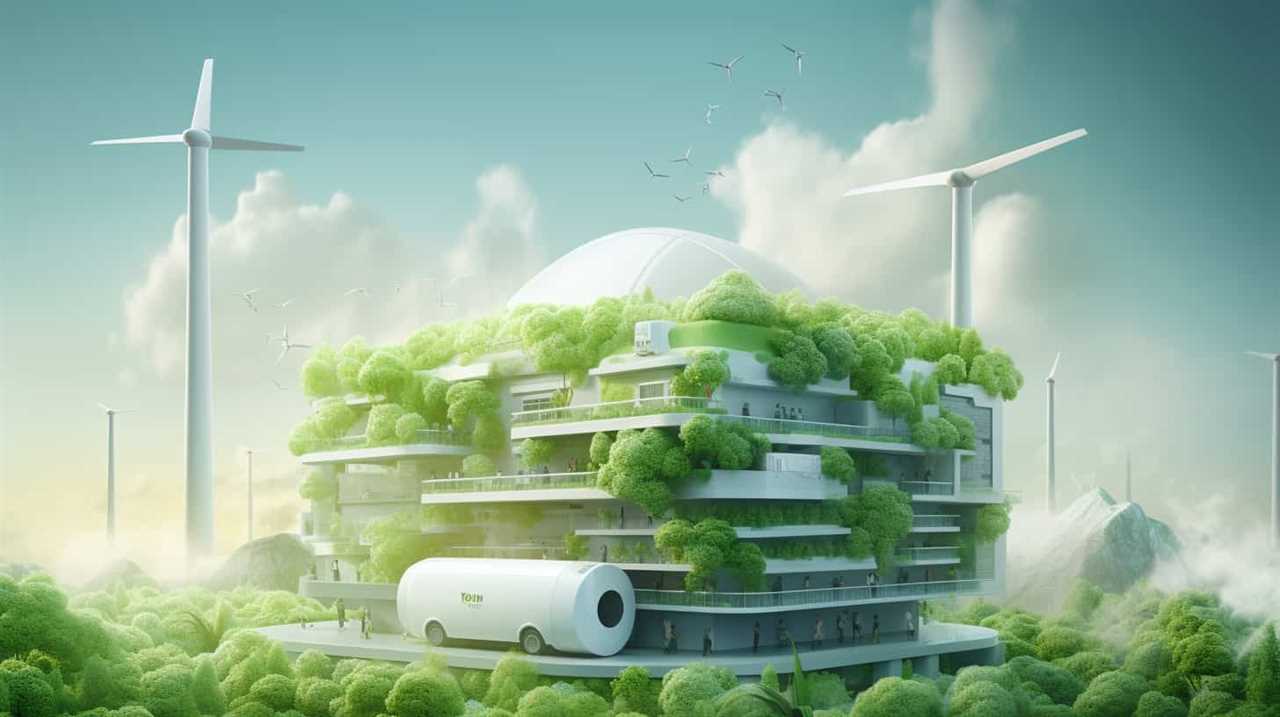
| Insulation Material | R-Value (per inch) |
|---|---|
| Fiberglass | 2.2 – 2.7 |
| Cellulose | 3.2 – 3.8 |
| Spray Foam | 6.0 – 6.5 |
| Reflective Foil | 1.0 – 2.0 |
Table: Common Insulation Materials and their R-Values per inch. Higher R-value indicates better insulation efficiency.
Utilizing Programmable Thermostats
We can maximize our heat pump’s energy efficiency by utilizing programmable thermostats and adjusting temperature settings based on our daily schedule. Programmable thermostats are smart technology devices that allow us to set different temperature levels for different times of the day. This feature helps us save energy by automatically adjusting the temperature when we aren’t at home or asleep.
Some programmable thermostats also come with energy saving features such as occupancy sensors, which detect when a room is unoccupied and adjust the temperature accordingly. By using these energy saving features, we can reduce our energy consumption and lower our heating and cooling costs.
It’s important to choose a programmable thermostat that’s compatible with our heat pump system and to properly set and program it for optimal efficiency.
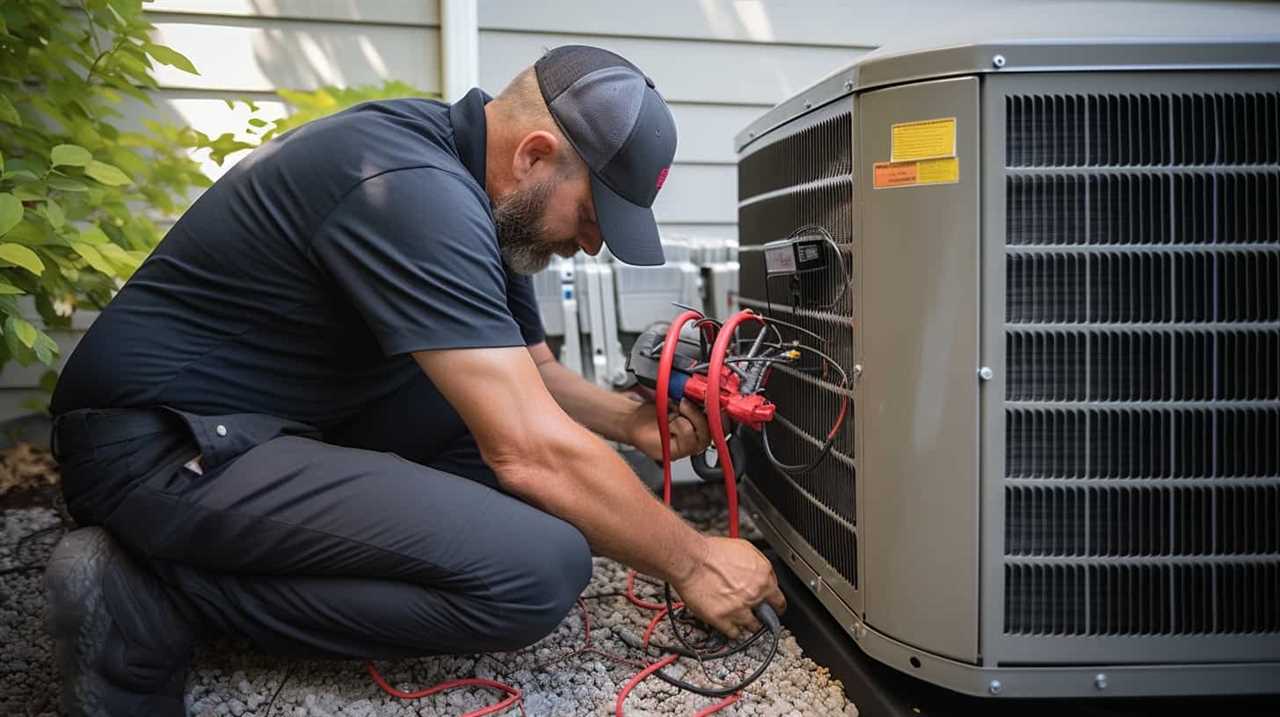
Supplementing With Solar Power
One effective way to boost our heat pump’s energy efficiency is by supplementing it with solar power. By installing solar panels on our property, we can harness the power of the sun to generate electricity, reducing our reliance on the grid.
Here are four benefits of supplementing our heat pump with solar power:
-
Lower energy costs: Solar power can help us save money on our electricity bills by offsetting the energy consumed by our heat pump.
-
Environmentally friendly: Solar power is a clean and renewable energy source, reducing our carbon footprint and helping combat climate change.
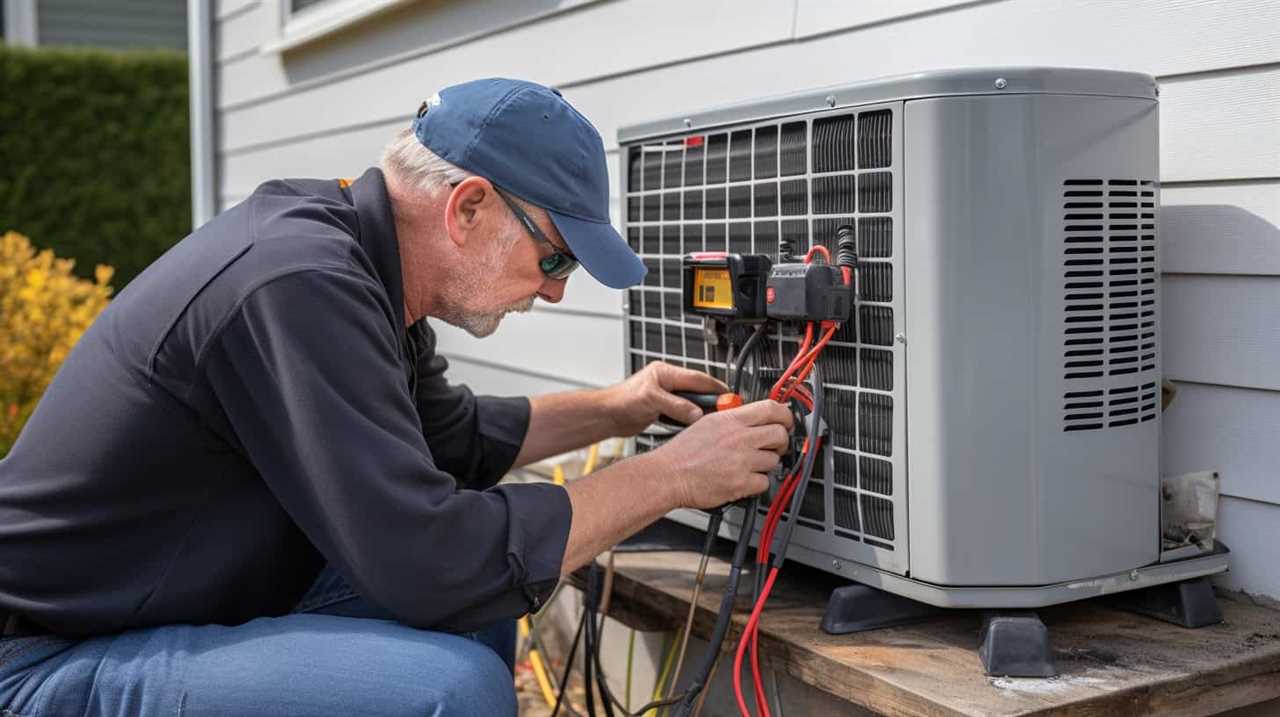
-
Net metering benefits: With solar panel installation, we can take advantage of net metering programs, where excess energy generated by the panels can be fed back into the grid, earning us credits or monetary compensation.
-
Increased energy independence: By generating our own electricity through solar power, we become less dependent on the grid, ensuring a more reliable and resilient energy source for our heat pump.
Supplementing our heat pump with solar power not only enhances its energy efficiency but also brings numerous benefits to our wallet and the environment.
Frequently Asked Questions
How Can I Determine the Optimal Temperature Settings for My Heat Pump?
We determine the optimal temperature settings for our heat pump by considering the optimal temperature range and the factors that affect temperature settings. It’s important to find the balance for maximum energy efficiency.
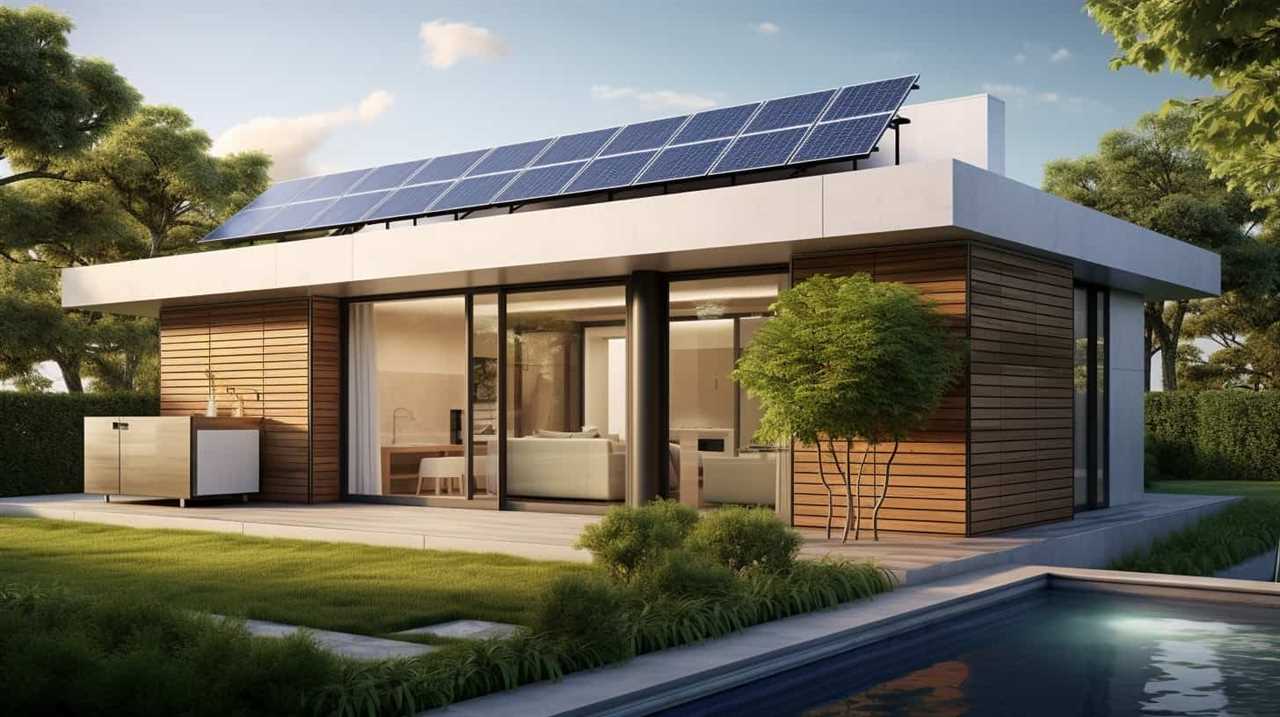
What Are Some Common Maintenance Tasks I Should Perform Regularly to Ensure My Heat Pump’s Energy Efficiency?
Regular maintenance is key to keeping our heat pump energy efficient. We should clean or replace filters, check for leaks, and schedule professional maintenance. These simple tasks will ensure our pump runs smoothly and saves energy.
Are There Any Specific Types of Insulation That Are More Effective in Improving the Energy Efficiency of a Heat Pump?
There are several types of insulation that can be more effective in improving the energy efficiency of a heat pump. These include materials such as spray foam, cellulose, and fiberglass.
How Do Programmable Thermostats Help in Maximizing the Energy Efficiency of a Heat Pump?
Programmable thermostats optimize heat pump efficiency by allowing us to schedule temperature changes based on our needs. This reduces energy consumption by adjusting the temperature when we’re away or asleep, resulting in significant energy savings.
What Are the Key Factors to Consider When Deciding to Supplement a Heat Pump With Solar Power?
When deciding to supplement a heat pump with solar power, key factors to consider are the integration of solar panels with the heat pump system and the potential energy savings that can be achieved.

Conclusion
In conclusion, implementing these techniques can significantly improve the energy efficiency of your heat pump. Studies have shown that optimizing temperature settings alone can result in energy savings of up to 15%.
Regular maintenance and cleaning can increase the efficiency by another 5%. By insulating your home, you can reduce heat loss and further enhance energy savings.
Utilizing programmable thermostats can save an additional 10%, while supplementing your heat pump with solar power can lead to even greater energy efficiency gains.
Energy Efficiency
Heat Pumps: Elevating HVAC System Efficiency

We have uncovered the key to maximizing HVAC system efficiency: heat pumps. These amazing devices will transform your perspective on saving energy.
With their cutting-edge technology, heat pumps maximize efficiency and minimize waste. Say goodbye to high energy bills and hello to a more sustainable future.
Get ready to liberate yourself from the chains of inefficiency and embrace the power of heat pumps. It’s time to elevate your HVAC system to new heights of efficiency.
Key Takeaways
- Heat pumps offer a sustainable and energy-efficient alternative to traditional HVAC systems.
- They provide both heating and cooling capabilities in a single unit, eliminating the need for separate systems.
- Heat pumps save up to 30-40% on heating costs compared to traditional systems.
- They are environmentally friendly, reducing harm to the environment and contributing to a more sustainable future.
The Role of Heat Pumps in HVAC System Efficiency
As HVAC experts, we understand the crucial role that heat pumps play in elevating the efficiency of the overall HVAC system. Heat pumps have revolutionized the way residential HVAC systems operate, offering a more sustainable and energy-efficient alternative to traditional heating and cooling methods.

These innovative devices use advanced technology to transfer heat from one area to another, allowing them to both cool and heat your home effectively. Heat pump applications in residential HVAC systems have become increasingly popular due to their ability to provide both heating and cooling capabilities in a single unit, eliminating the need for separate systems. This not only saves space but also reduces energy consumption.
With ongoing advancements in heat pump technology, we can expect further improvements in energy efficiency, leading to even greater cost savings and reduced environmental impact.
Benefits of Heat Pumps for High Efficiency HVAC Systems
We, as HVAC experts, can highlight the benefits of heat pumps for high efficiency HVAC systems. Heat pumps provide several advantages over traditional HVAC systems, including significant cost savings and improved energy efficiency.
One of the main benefits of heat pumps is their ability to transfer heat from one place to another, rather than generating heat through combustion or electrical resistance. This makes them more energy efficient and environmentally friendly. Heat pumps can save up to 30-40% on heating costs compared to traditional systems, and they can also provide cooling in the summer months.

To help you understand the advantages of heat pumps, here is a table comparing heat pumps to traditional HVAC systems:
| Heat Pumps | Traditional HVAC Systems |
|---|---|
| Higher energy efficiency | Lower energy efficiency |
| Lower operating costs | Higher operating costs |
| Environmentally friendly | More harmful to the environment |
| Can provide both heating and cooling | Separate systems required for heating and cooling |
| Longer lifespan | Shorter lifespan |
As you can see, heat pumps offer a range of benefits that make them a superior choice for high efficiency HVAC systems. The cost savings from heat pump technology, along with their energy efficiency, make them a wise investment for homeowners and businesses alike.
Maximizing Energy Savings With Heat Pump Technology
To achieve maximum energy savings with heat pump technology, we must optimize system performance through regular maintenance and proper usage.
One way to maximize energy savings is by improving insulation in our homes. By ensuring that our homes are well-insulated, we can prevent heat loss or gain, allowing our heat pumps to work more efficiently.
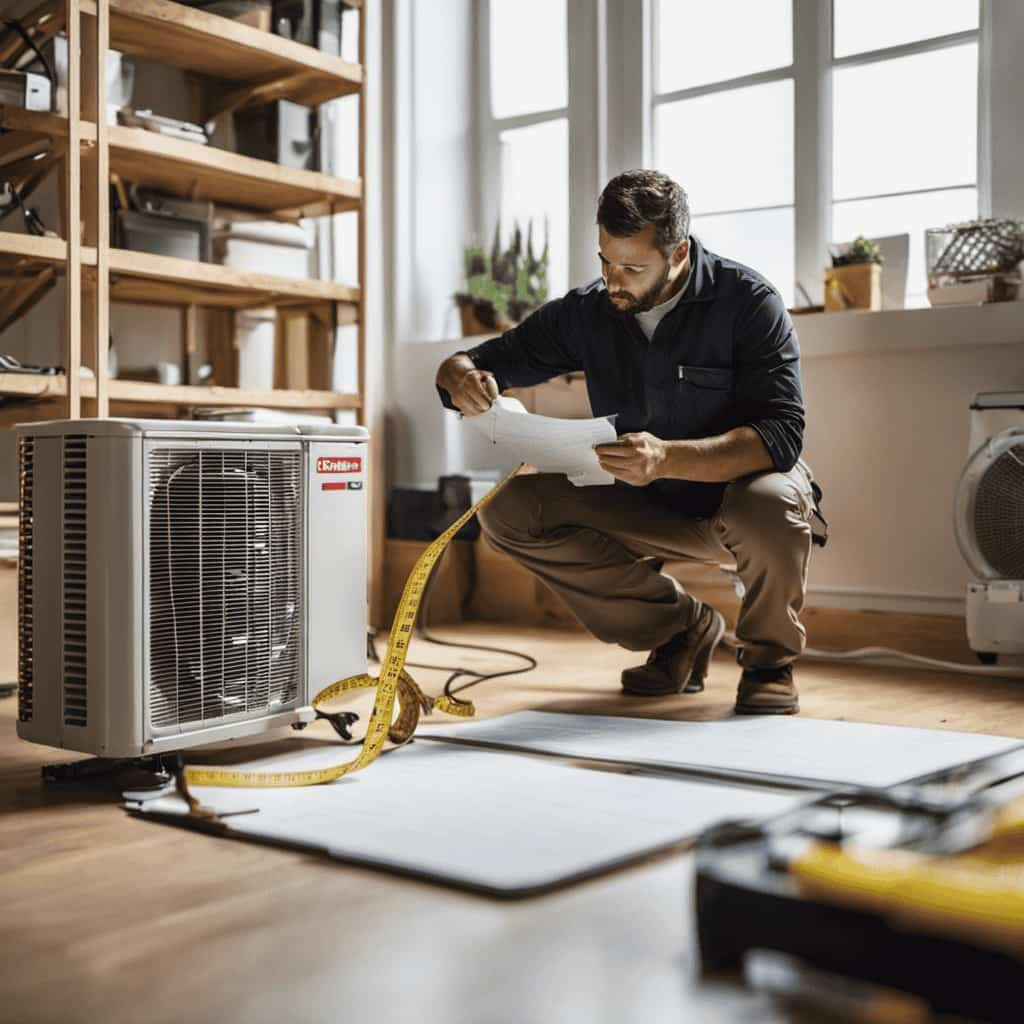
Another way to increase energy savings is by reducing carbon emissions. Heat pumps are known for their low carbon footprint as they transfer heat rather than generate it, resulting in reduced greenhouse gas emissions.
Key Factors for Optimizing HVAC Efficiency With Heat Pumps
For optimal HVAC efficiency with heat pumps, we need to focus on key factors such as proper sizing, regular maintenance, and efficient air distribution. When it comes to heat pump installation, it’s crucial to ensure that the unit is sized correctly for the space it will be servicing. A unit that’s too small will struggle to meet the heating and cooling demands, while an oversized unit will cycle on and off frequently, leading to energy waste.
Regular maintenance is also essential to keep the system running smoothly and efficiently. This includes cleaning or replacing filters, checking refrigerant levels, and inspecting the ductwork for any leaks or obstructions.
Finally, efficient air distribution is vital for maximizing the heat pump’s performance. Properly sealed and insulated ductwork will prevent air leakage and ensure that conditioned air reaches all areas of the building.

By focusing on these key factors, we can optimize the HVAC efficiency with heat pumps.
Transitioning into the next section about ‘heat pumps: the future of energy-efficient HVAC systems,’ it’s clear that heat pump technology holds great promise in revolutionizing the way we heat and cool our buildings.
Heat Pumps: The Future of Energy-Efficient HVAC Systems
The future of energy-efficient HVAC systems lies in the widespread adoption and advancement of heat pumps. Heat pump technology advancements are revolutionizing the way we cool and heat our homes and buildings.
These innovative systems utilize the principles of thermodynamics to transfer heat from one location to another, providing both heating and cooling capabilities. Heat pumps are highly efficient, as they can deliver up to three times more heating or cooling energy than the electrical energy they consume.

By harnessing renewable energy sources, such as solar power or geothermal energy, heat pumps can further reduce their carbon footprint and contribute to a more sustainable future. The impact of heat pumps on carbon footprint reduction can’t be overstated, as they offer an environmentally friendly alternative to traditional HVAC systems, significantly reducing greenhouse gas emissions and promoting energy conservation.
With continuous research and development, heat pumps will continue to evolve, providing even greater energy efficiency and further reducing our reliance on fossil fuels.
Frequently Asked Questions
What Is the Average Lifespan of a Heat Pump?
The average lifespan of a heat pump depends on various factors, including maintenance requirements. Regular maintenance and proper care can significantly extend the lifespan of a heat pump, ensuring optimal performance and efficiency.
Are Heat Pumps Suitable for All Climates?
Heat pumps are an energy-efficient option for all climates, although they may not perform as efficiently in extreme temperatures. They help reduce environmental impact by using renewable energy sources, making them a viable choice.
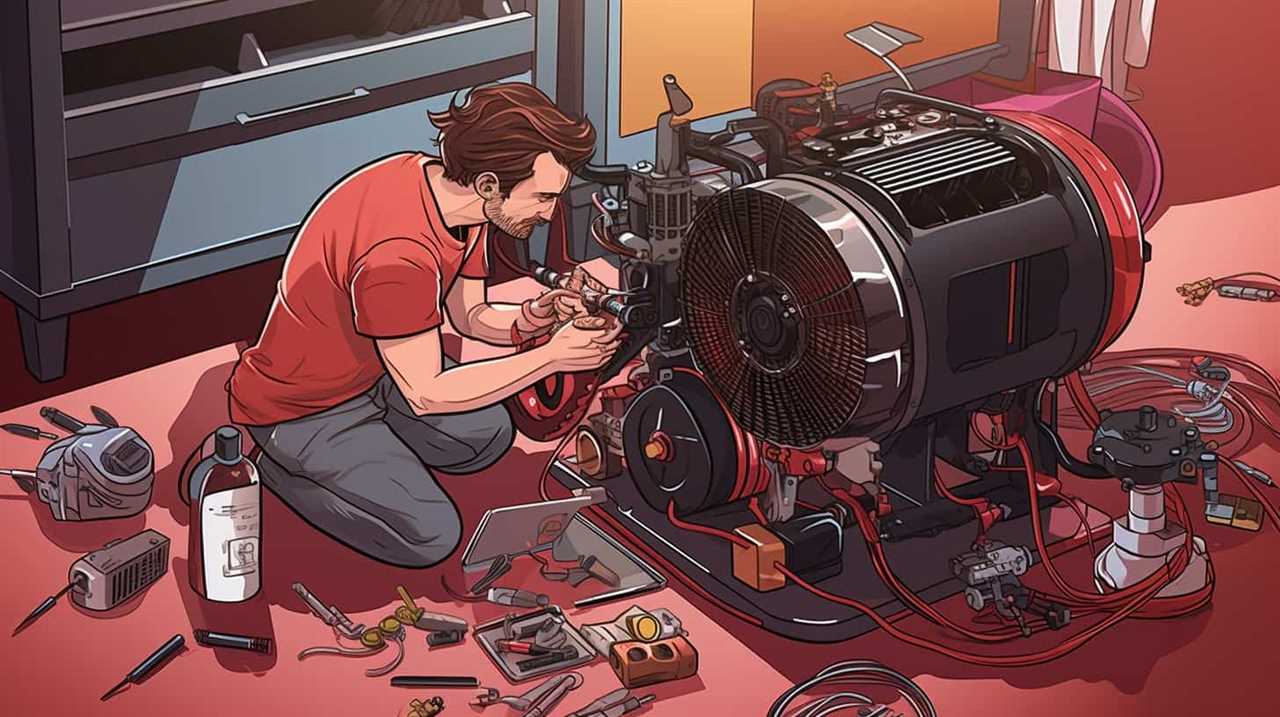
How Much Noise Do Heat Pumps Typically Make?
Heat pumps typically produce moderate noise levels, which can vary depending on the specific model and installation. It is important to consider noise reduction features and proper maintenance to minimize any potential disturbances.
Can a Heat Pump Be Used as a Standalone Heating or Cooling System?
Yes, a heat pump can be used as a standalone heating or cooling system. It is a versatile and energy-efficient solution for various applications, providing both heating and cooling capabilities in a single system.
Are There Any Government Incentives or Tax Credits Available for Installing a Heat Pump?
There are government incentives and tax credits available for installing a heat pump. These incentives and credits can help offset the cost of installation and make it more affordable for homeowners.
Conclusion
In conclusion, heat pumps play a crucial role in elevating the efficiency of HVAC systems. With their ability to transfer heat rather than generate it, heat pumps offer numerous benefits such as energy savings and improved indoor air quality.

Interestingly, studies have shown that heat pumps can reduce energy consumption by up to 50% compared to traditional HVAC systems. This statistic highlights the significant impact heat pumps can have in creating a more sustainable and cost-effective future for energy-efficient HVAC systems.
-

 Residential and Commercial Applications2 weeks ago
Residential and Commercial Applications2 weeks agoBest Amana Heat Pump Reviews
-

 Thermal Energy Transfer2 weeks ago
Thermal Energy Transfer2 weeks agoBreakthroughs in Modern Heat Pump Systems: Thermal Energy Edition
-

 Residential and Commercial Applications2 weeks ago
Residential and Commercial Applications2 weeks agoBest Heat Pump
-

 Geothermal Heat Pumps3 months ago
Geothermal Heat Pumps3 months agoUpgrade Your Comfort with Our Efficient HVAC Systems
-

 Air Conditioning3 months ago
Air Conditioning3 months agoExploring Energy-Efficient Air Conditioning Heat Pumps
-

 Geothermal Heat Pumps3 months ago
Geothermal Heat Pumps3 months agoInnovative Geothermal Heat Pump Manufacturers Revolutionize Energy Efficiency
-

 Thermal Energy Transfer1 month ago
Thermal Energy Transfer1 month agoBoost Your Heat Pump Efficiency: Interactive Guide
-

 Residential and Commercial Applications2 weeks ago
Residential and Commercial Applications2 weeks agoBest Portable Heat Pump Heat & AC










